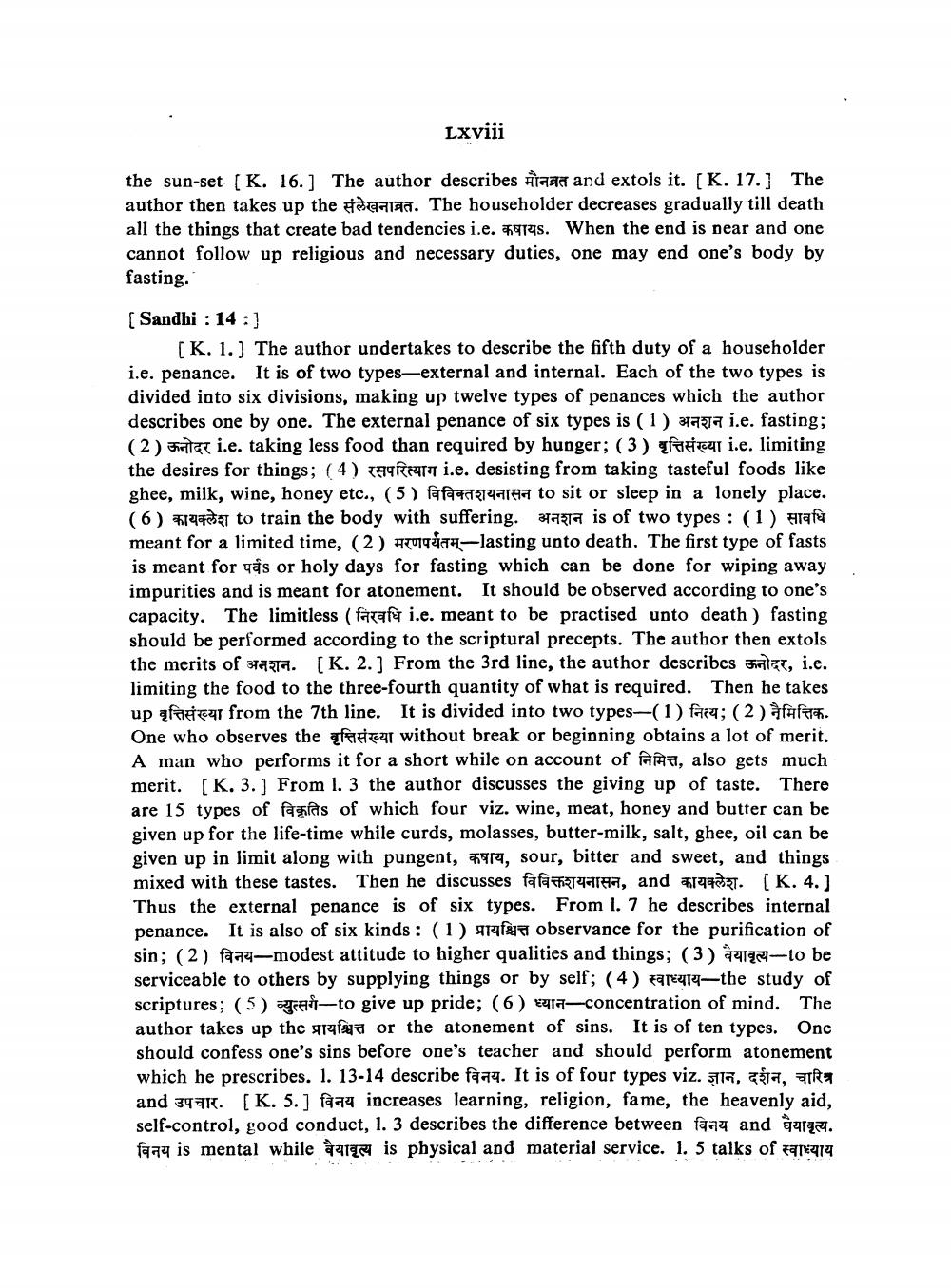________________
Lxviii
the sun-set (K. 16.] The author describes #a ard extols it. (K. 17.] The author then takes up the alga. The householder decreases gradually till death all the things that create bad tendencies i.e. 59195. When the end is near and one cannot follow up religious and necessary duties, one may end one's body by fasting.
(Sandhi : 14:]
[K. 1. ) The author undertakes to describe the fifth duty of a householder i.e. penance. It is of two types-external and internal. Each of the two types is divided into six divisions, making up twelve types of penances which the author describes one by one. The external penance of six types is ( 1 ) 27a37a i.e. fasting; (2) Set i.e. taking less food than required by hunger; (3) facea i.e. limiting the desires for things; (4) TARAT i.e. desisting from taking tasteful foods like ghee, milk, wine, honey etc., (5) faf77374717 to sit or sleep in a lonely place. (6) कायक्लेश to train the body with suffering. अनशन is of two types : (1) सावधि meant for a limited time, (2) U19474-lasting unto death. The first type of fasts is meant for gas or holy days for fasting which can be done for wiping away impurities and is meant for atonement. It should be observed according to one's capacity. The limitless (farafer i.e. meant to be practised unto death ) fasting should be performed according to the scriptural precepts. The author then extols the merits of warta. [K. 2.) From the 3rd line, the author describes Flat, i.e. limiting the food to the three-fourth quantity of what is required. Then he takes up after ear from the 7th line. It is divided into two types—(1) face; (2) ff. One who observes the face without break or beginning obtains a lot of merit. A man who performs it for a short while on account of ART, also gets much merit. [K. 3. ] From 1. 3 the author discusses the giving up of taste. There are 15 types of fagras of which four viz. wine, meat, honey and butter can be given up for the life-time while curds, molasses, butter-milk, salt, ghee, oil can be given up in limit along with pungent, #919, sour, bitter and sweet, and things mixed with these tastes. Then he discusses fala Firear#, and 194027. (K. 4.) Thus the external penance is of six types. From 1. 7 he describes internal penance. It is also of six kinds : (1) graf observance for the purification of sin; (2) fa74-modest attitude to higher qualities and things; (3) agar-to be serviceable to others by supplying things or by self; (4) Fa14414—the study of scriptures; (5) -to give up pride; (6) 719-concentration of mind. The author takes up the grafa or the atonement of sins. It is of ten types. One should confess one's sins before one's teacher and should perform atonement which he prescribes. 1. 13-14 describe fàay. It is of four types viz. 316, 318, TRA and 399K. [K. 5.) faay increases learning, religion, fame, the heavenly aid, self-control, good conduct, 1. 3 describes the difference between faa4 and garaz. 1974 is mental while 991 is physical and material service. 1. 5 talks of 18914




